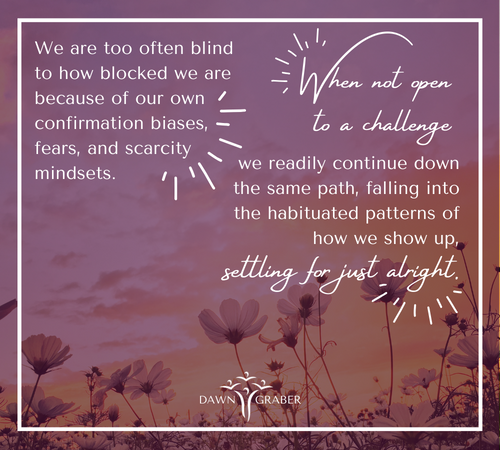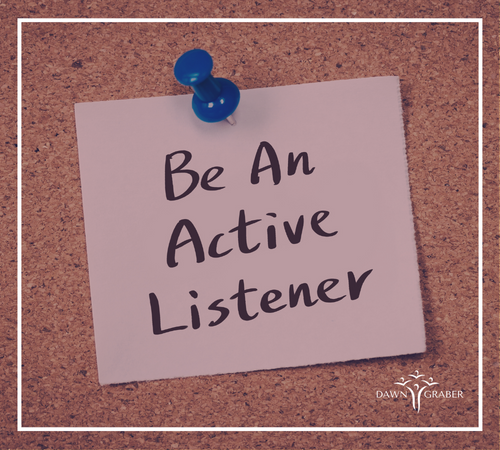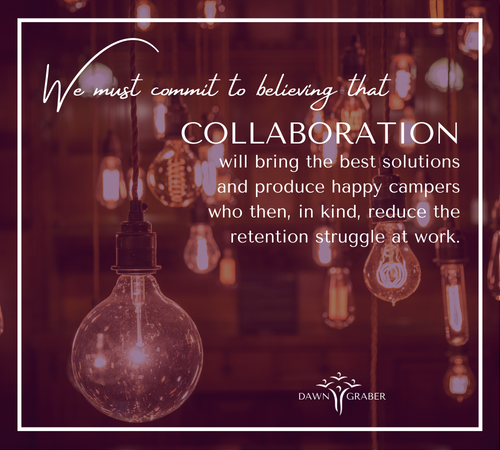Why Build a Coaching Culture?
Some recent coaching questions:
↪ What parts of this problem do you want to solve?
↪ Tell me more about this soul (their word) of yours that hurts.
↪ What does your older, wiser self say?
↪ What does “saying the things that need to be said” look like for you?
↪ How is your word, “wisdom,” showing up for you here?
↪ What does success look like to you on the other side of this?
↪ What are you willing to do?
A sampling of client-determined action steps:
✓ When we disagree on the next step, we will pause, have patience, go eat, and then see if we have a new perspective afterward (a team’s response).
✓ I knew what music to put on to calm me. I’ll do that again when…
✓ I will set a goal of 3 networking interactions at that conference for the purpose of…
✓ I’m sending you a time-lapse video by this weekend as motivation to do this “thing.”
✓ I chose to lie flat on the ground to recover after that meeting.
✓ I deserve to take care of myself. I will do so this week by…
✓ I’m going to find that person off to the side of the meeting and say…
I love coaching. I look at the hours spent coaching clients - the ones who want to work on themselves - as sacred interactions where the goal is for their full transforming influence to be unleashed to a greater degree into the world.
"Coaching is partnering with clients in a thought-provoking and creative process that inspires them to maximize their personal and professional potential."
International Coaching Federation
How does this happen? Through deep listening and responsive questioning, believing, as the ICF states, that my clients are creative, resourceful, and whole and will be able to discern their next steps. We are each the experts of ourselves. But we are too often blind to how blocked we are because of our own confirmation biases, fears, and scarcity mindsets. When not open to a challenge (a coaching framework) or the work involved in being coached (willingness to wrestle with one’s self honestly), we readily continue down the same path, falling into the habituated patterns of how we show up, settling for just alright. Life is too short! And we were put on this earth to do amazing things, not just settle for the same ‘ole, same ‘ole. Let’s embrace coaching and the coaching cultures we can build within our organization’s DNA.

So, how does a coaching culture look in an organization?
1. The precursor to all coaching cultures is an organizational commitment to the wellness of its team members.
Part of that wellness emphasis is supporting employees with what they need to do their jobs while honoring their unique individualism. Providing coaching to groups, teams, or individuals honors how each individual is wired and helps the organizational goal advance more readily than when members are left on their own to muddle through how to fit into the needed organizational alignment.
2. Listening is at the core of a coaching culture.
But you might be wondering who has time to listen when you’re a part of a hustling, thriving business? The act of listening is so impactful that the reality is there isn't enough time NOT to listen. We know we struggle with simply having downtime for our minds to ponder. We know that we must pause to think, allow ideas to come forth when walking, in the shower, or simply not striving so hard to find them. The answers also come when we are in the presence of intentional listeners who provide space through some quiet moments here and there, knowing when or not to interrupt, with yet the expectation for our voice to speak our wonderings. I teach a class through the Society of Process Consulting that spends two full lessons on the core competencies of listening as outlined by the Society and highlighted in Dr. Mark L. Vincent’s book, Listening, Helping, Learning: the Core Competencies of Process Consulting. A coaching culture has informed leaders and members who have been taught and seek out to be better listeners, listening actively and comprehensively, conceptually and contextually, architecturally, and adaptively.

3. A coaching approach has an embedded expectation of application where true transformation occurs.
This coaching approach can inspire more employee engagement compared to only supporting our employees through professional development, conferences, and coursework. Teachers have long had to show their learning to get “credit.” A coaching workplace culture welcomes and expects employees to voice their needs to do their job well. Then, in such a supportive culture, the coaching leader invites the team members to discern how they want to design problem-solving solutions. Lastly, the reflective time with an ongoing coach revisits how the team members' action steps impacted their work challenges and opportunities. Then, it picks up the conversation about the desired next steps again.
4. A coaching culture has us structuring meetings differently.
In a coaching culture, a team’s regular meetings have the manager inviting and expecting team members to tell each other what they need. Team members expect to be held accountable when they say they’ll do this by then. They have a better chance of making that goal because they’ve also unashamedly invited others to help them in whatever mode keeps them most accountable. Coaching cultures invite accountability instead of the fear of it. Accountability provides the vehicle for success.
5. Questions and challenges are the norm in a coaching culture.
If no one disagrees with an idea in a meeting, team members should automatically give voice to all the varied perspectives they can imagine. A Yes And structure is helpful in a coaching culture where team members learn to speak their truth more readily. A coaching culture finds even just 10% of something one agrees with and says “Yes” to that 10% out loud. This helps to keep the other members’ minds open without getting defensive. Then, another idea is shared, continuing with the participation of the decision-makers in the room. No “buts” allowed. Agree on some aspect and build on it with every member working together for the best plan. Respectful questioning from many angles becomes a welcome and helpful part of a coaching culture.
6. A coaching culture produces the best solutions for workplace challenges and opportunities because it promotes more natural teaming.
We more readily become a team in a coaching culture where more help is asked for and offered freely, diminishing the tendency for competition. The Center for Creative Leadership says, "A coaching culture improves not only the way employees interact with each other but also the interactions they have with customers and potential clients.” Authentically being invited to declare what we need and being asked what we think goes far in building collaboration. We must commit to believing that such collaboration will bring the best solutions and produce happy campers who then, in kind, reduce the retention struggle at work.

So, how does a coaching culture look in an organization?
⭐️ Start with listening work. Do some deep work on this. A coaching certification for leaders may be transformational in providing the experience and ability of deep listening and questioning. Become more comfortable operating from this stance whenever possible in your role.
⭐️ Utilize coaches yourself and for your team members. Check the investment after some months of being coached. I’m confident your employee's happiness, pride in their work, and productivity will be higher and well worth the investment.
⭐️ Utilize a process consultant who can help you craft a coaching culture within your organization. This will ensure that all voices are regularly heard and that meeting norms and decision-making practices are adjusted. Lastly, crafting a coaching culture will set up accountability structures that members welcome rather than dread.
Coaching is worth it.
When I meet with my coach(es) (and yes, sometimes I’ve had two at once), I may think I don’t have anything to talk about or solve at the moment. I tend to feel I know what I need to do. I just haven’t been able to get there yet. 😉 I’ve learned never to cancel my own coaching appointments, though. The pause provided for me with a coach to hear my own thoughts and test their congruency with my values and goals while being prompted to think about what I need to do next is golden. I’ve experienced that many times while being coached. Coaching reveals and allows my transforming influence to have more impact in this world as a human, as a coach and consultant, as a champion for women leaders, for my grandkids and family, and ultimately for me personally, as a vessel for God.
After a month of 30 coaching appointments and consulting with some client leaders as they continue to develop an empowered and engaged staff whose voice they seek…after renewing my ICF Associate Certified Coach credential this spring for another three-year cycle…after completing an Ethics Coaching course…after the 10 hours of mentor coaching…and after the 40 hours of CEUs gained…it seemed natural to encourage you via this blog to develop a coaching culture within your organization, too. Here’s hoping you take the coaching plunge. 👍
Transforming influence alongside you,

Coaching Culture Resources:
Create an Impactful Coaching Culture in Your Organization by ICF
How to Instill a Coaching Culture by Frédéric Funck, Center for Creative Leadership.
Listening. Helping, Learning: Core Competencies of Process Consulting by Mark L. Vincent
The Society of Process Consulting course page where PCT 201 (including a deep dive into listening, helping, and learning) will be offered in the summer of 2024.
Comprehensive Guide to Wellness at Work in Positive Intelligence Resources. I love the PQ program.
A,B,C,D,E Technique in Coaching to dispel irrational beliefs and show up with your full transforming influence by MyGrow—one of my favorite coaching resources.
Coaching for Leadership program resources at NYU. I use the GROW and FUEL framework and Accountability document.
Dawn’s coaching information, as shared on her website, Transforming Influence on Design Group International
What I'm Reading:
The Well-Lived Life: A 103-Year-Old Doctor’s Six Secrets to Health and Happiness at Every Age by Gladys McGarey, M.D.
The Age of Magical Overthinking by Amanda Montell
Healthy at Home: Get Well and Stay Well Without Prescriptions by Tieraona Low Dog, M.D.

April 18, 2024

Comments